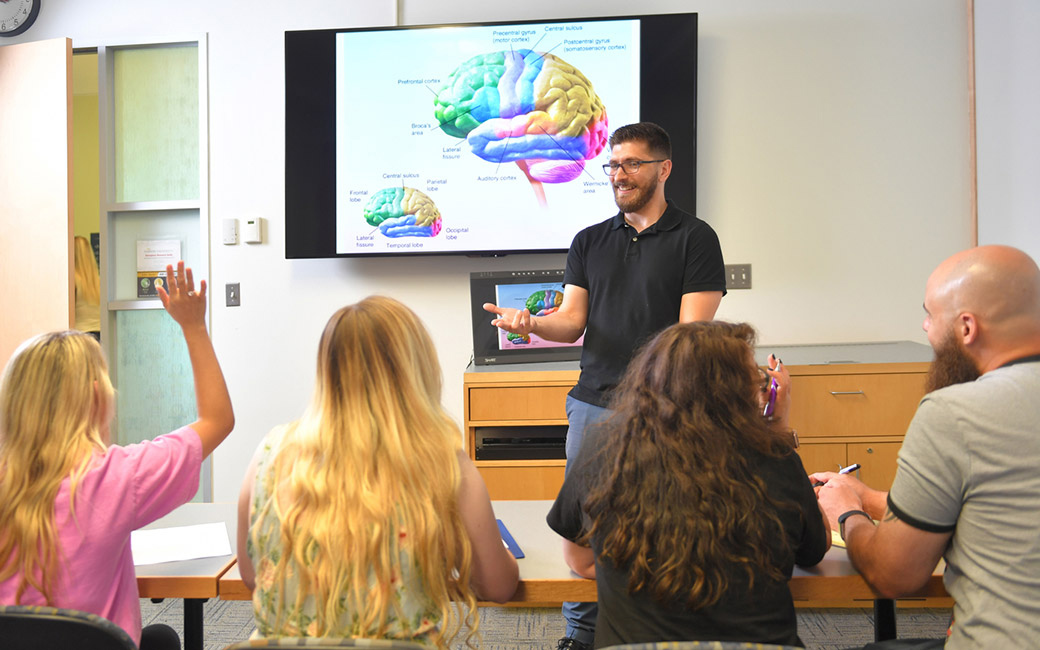Managing your emotions
When emotions run high, Jared McGinley says there are physiological reasons why.

What drives our emotional states? How do our emotions affect decisions or performance? What do emotions look like at the physiological level?
These are the types of questions Jared McGinley, associate professor in the Department of Psychology, is seeking to answer through his research. “I measure what ‘felt’ emotion is comprised of,” explains McGinley. “My research focuses on body-based biology and capturing the essence of emotion.” McGinley taps into a variety of physiological measures, such as heart rate, blood pressure, skin conductivity, facial/muscular contractions, and respiration rate to predict and explain emotions.
“ Psychology is one of the largest departments at TU in which students can create their own paths for careers. ”
Among his recent research: the use of cardiovascular responses (e.g., heart rate variability) as predictors for stress management. “We have found that stable heart rates may indicate individuals who have higher anxiety and a diminished ability to adapt to stressors, while higher heart rate variability may signal more flexibility and adaptability,” says McGinley.
With his work published in Frontiers in Human Neuroscience and other journals in the field, McGinley involves “an army of student researchers” in research design, execution and data analysis. “Many students are intimidated by science. I try to make psychology more applicable and approachable,” says McGinley. Through the years, McGinley has partnered on projects with the U.S. Army Research Laboratory, (ARL), most recently exploring how basic physiology and cognition inform the performance of soldiers. Several TU graduates have gone on to work in research positions at ARL.
“Psychology is one of the largest departments at TU in which students can create their own paths for careers,” notes McGinley. “The broad knowledge base and skill set that students acquire will make them highly qualified for jobs in all sectors, particularly counseling, school and clinical psychology, human resources, and training and development.”